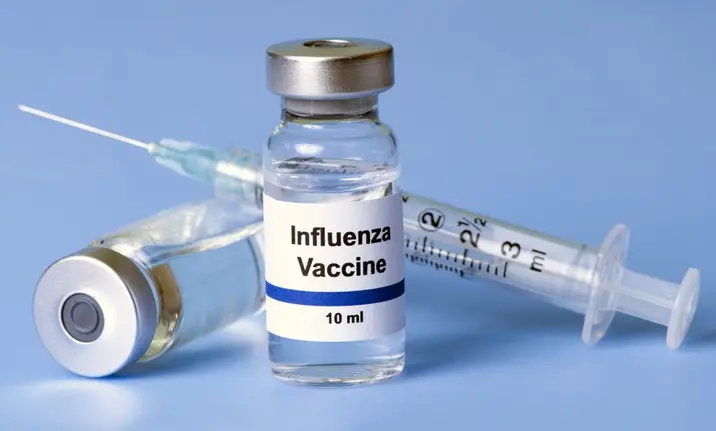

Source: Shutterstock
How to Fight Off the Flu
Last updated: Tuesday, June 26, 2018 | 2 min reading time
Here's what you need to know about influenza and the flu vaccinations you can take to ward off this virus.
What is influenza?
Influenza is a common illness involving mainly the upper respiratory tract and can occasionally lead to serious complications. Each year, an estimated 600 people die from influenza in Singapore. Fortunately, influenza is preventable by vaccination.
How to tell the difference between a flu and common cold?
If you have a high fever (usually 38 – 41°C) and 2 – 3 other symptoms below (most commonly muscle aches and cough), you probably have the flu.
| Symptoms | Flu | Common Cold |
|---|---|---|
| Onset of symptoms | Sudden | Gradual |
| Fever | High (38 - 41°C) | None or mild (less than 38°C) |
| Headaches | Present | Usually absent |
| Fatigue and tiredness | Severe | Usually mild |
| Sore throat | Sometimes | Common |
| Cough | Present | Usually absent |
| Chest discomfort | Common, sometimes severe | Mild to moderate |
| Sneezing | Occasional | Common |
| Duration of symptoms | 7 - 10 days | 3 - 4 days |
How do I protect myself?
You can lower your chance of getting the flu by getting vaccinated annually. The flu vaccine is updated every 6 months.
What are the types of flu vaccines available?
There are 2 different types of flu vaccines, trivalent and quadrivalent. Both vaccines protect against A and B influenza strains. A-strains of the flu can be transmitted between humans and animals, and are generally responsible for large flu epidemics. B-strains on the other hand, are found only in humans, usually provoke less severe reactions, and do not cause pandemics.
Trivalent vaccine protects against 3 flu strains; Quadrivalent vaccine protects against 4 flu strains.
| A-strains | B-strains | |
|---|---|---|
| Trivalent vaccine | * A/Michigan/45/2015 (H1N1) * A/Hong Kong/4801/2014 (H3N2) |
* B/Brisbane/60/2008 |
| Quadrivalent vaccine | * A/Michigan/45/2015 (H1N1) * A/Hong Kong/4801/2014 (H3N2) |
* B/Brisbane/60/2008 * B/Phuket/3073/2013 |
Hence, we will recommend the quadrivalent vaccine for broader coverage and better protection again influenza.
Who should get the flu vaccine?
In general, anyone who would like to reduce their chance of getting influenza can be vaccinated. It is strongly recommended for high risk groups, such as children aged 6 months – 18 years, people with chronic medical conditions (eg. diabetes, asthma, etc.), people aged 50 years and above, and people who live with or care for those at high risk of influenza.
Who should not receive the vaccine and what are the side effects?
People who have experienced an allergy to a previous flu vaccination or any of its contents (eg. eggs), and those with fever should not take the flu vaccination.
The vaccination may cause mild pain, swelling over the injection site and fever. These complications are mild and generally do not require treatment. Serious side effects after the vaccination are uncommon.
When should the vaccination be done?
Travellers who are at higher risk of complications arising from influenza and are travelling are advised to go for flu vaccination. The vaccination should be taken at least 2 weeks prior to departure as it takes time for the vaccination to take effect.
Where can I get the flu vaccination?
The flu vaccines are available at all Parkway Shenton clinics. Find a clinic near you.
If you have a Parkway Shenton in-house clinic in your office premises, speak to our doctor to find out more.
Prioritise Your Health with Parkway Plus
Staying well starts with access to the right care. Whether it’s vaccinations, health screenings, or fitness training, preventive care helps you stay ahead of potential health issues.
Enjoy member rates on a wide range of medical services and wellness offerings at Parkway Shenton, Parkway MediCentre, our sister hospitals within the IHH Healthcare Singapore network, and partner brands.
Simply download the MyHealth360 app and flash your Parkway Plus card at participating clinics and partners.
 Brain & Spine Care
Brain & Spine Care












